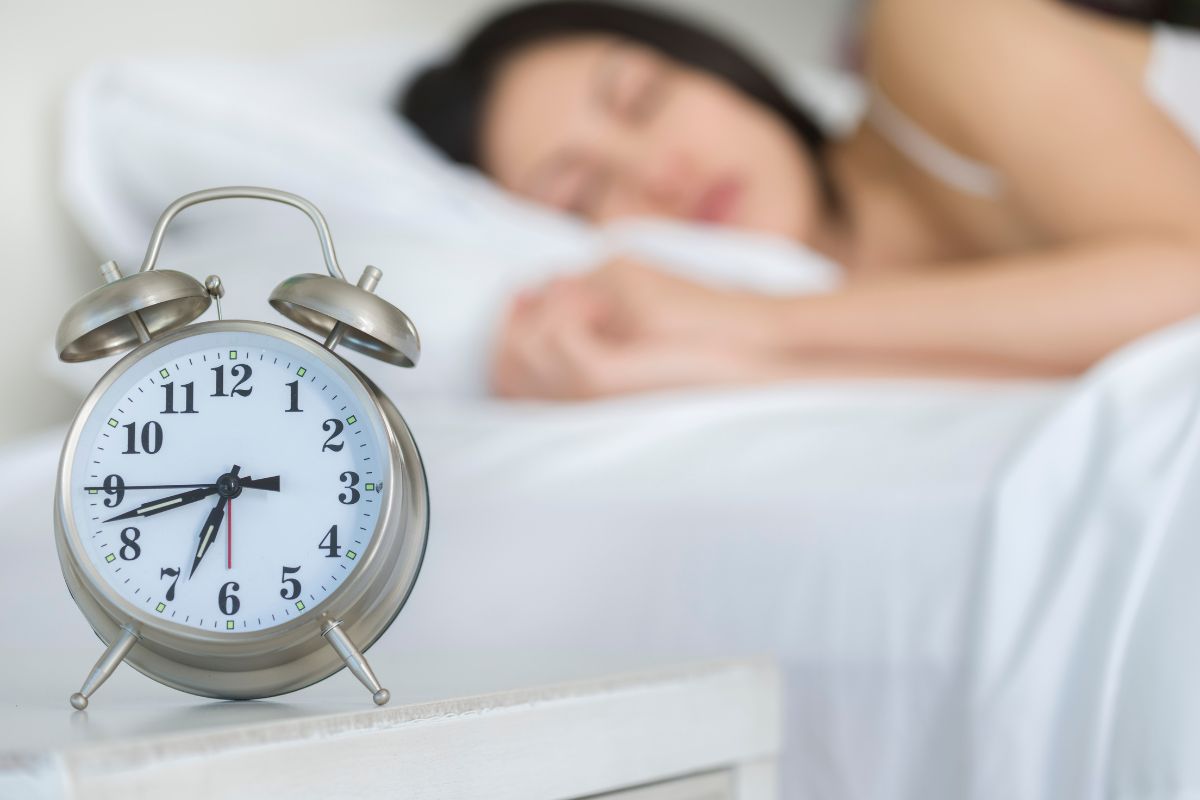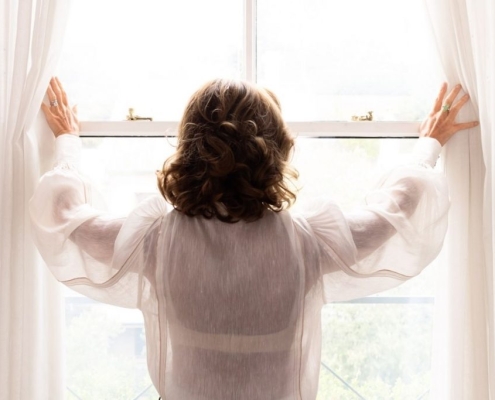How Well Are You Sleeping?
My relationship with sleep
In my younger, carefree days, sleep was a luxury I took for granted. Weekends meant leisurely lie-ins, and the concept of a solid night’s sleep was merely an afterthought. It wasn’t until I became a parent to my daughter, that I truly grasped the significance of quality sleep. Any parent can relate to the gradual disappearance of uninterrupted sleep from their lives. Suddenly, waking up feeling refreshed and energised became a distant memory. I found myself yearning for those blissful nights of rest.
It took some time, but eventually I established a new sleep routine. It started when I finally recognised how essential a decent night’s sleep was to my overall mood, wellbeing and output the following day. Once I had accepted that I was more productive during the day when I slept for more than 5-6 hours, I made a concerted effort to implement a proper sleep routine. Experiencing the benefits that a quality night’s sleep can induce has made me a tireless advocate for sleep (pun intended). 🙂
My bedtime routine rolled out wherever I was and my family had no choice but to get on board. Lights were dimmed by 7 pm, phones were silenced and no TV was allowed unless someone was actively watching it. If my family and I were staying at a hotel, I would call housekeeping and insist that our lights were turned down as well as the bed linen. I believed that returning to a dimly lit and sleep prepared room, after dinner, prepared all of us for sweet dreams, not just me.
“Don’t give up on your dreams so soon, sleep longer.” — Anonymous
Perimenopause only exacerbated my anxiety around sleep. It was more paramount than ever that my surroundings were conducive to relaxation as bedtime approached. Along with following a good sleep hygiene practice, I also enforced the stringent cooling (freezing) of the bedroom. My hot flushes were unbearable – so this was a non-negotiable for me. My husband and daughter knew better than to protest. They knew a much nicer person would greet them in the morning if I didn’t overheat during the night and got adequate sleep.
For insights on navigating through perimenopause and its impact on sleep, delve into What I Wish I’d Known Earlier About Menopause.
When Arianna Huffington published “The Sleep Revolution” in 2017, I finally had a formidable ally. Here was proof, from a trusted voice of authority, that sleep was critical to a happy, healthy and successful life. My husband (a believer of concrete facts) had no choice but to pay heed. Armed with scientific facts – lots of them, I could now confidently win the sleep debate. My sleep education felt complete once I finished Arianna’s life-changing book. I also felt a little smug that I had recognised and preached the benefits of sleep long before it was on trend to do so.
My sleep ‘quirks’ are now family legend and fortunately, we can all share a laugh over them. The rules, however, have remained. For me, maintaining a calm and peaceful environment in the evening is very much a part of my daily ritual.

A Guide to Doing it Right
A healthy sleep routine is crucial because it allows our bodies to shift into a rest and digest mode. Throughout the day, we all operate from a state of ‘flight or fight’ (sympathetic mode); our bodies and brains are constantly alert. For them to shut off, the parasympathetic nervous system needs to be activated – the heart and breath rate then begins to slow, giving way to relaxation and helping to stimulate the digestive system. The main benefit of activating the parasympathetic nervous system is that it helps to decrease cortisol – the stress hormone.
I’m committed to helping you establish a happy and healthy sleep routine that ensures you make the most of every precious minute you spend in bed. Here’s a comprehensive guide to optimising your bedtime experience:

Diet & Lifestyle
A quality night’s sleep begins with your overall diet and lifestyle habits. How well you are fuelling and moving your body during the day, has a direct correlation to how your body winds down and repairs itself overnight.
- It’s widely recognised that daily exercise is imperative to promoting solid sleep. It’s advised not to practice vigorous exercise right before bed, as you can overstimulate your nervous system.
- Limit caffeinated drinks, especially during the late afternoon and evening. Try a caffeine-free herbal tea instead. Chamomile flower is an excellent and natural sleep aid.
- Alcohol – this is one of the trickier substances to limit and monitor before bedtime, as most people are partial to drink in the evening. Alcohol does have effects on the brain, so if you are a bad sleeper, avoid consumption right before bed.
- Smoking can also affect the brain; it can make it difficult to fall asleep and promotes broken sleep.
- Do not consume too much liquid right before bed. In the same token, a heavy meal too close to bedtime is also not recommended – your digestive system goes into overdrive and prohibits a restful sleep.
Create a Space and Routine that Caters to Sound Sleep
It’s recommended that you reserve your bedroom solely for sleep and sex. Fostering a strong mental association with your bed, your bedroom and the act of sleeping is vital for triggering an anxiety-free wind down in the evening.
- Your bedroom should promote a sensory feeling of peace and calm. The temperature should be comfortably cool; lighting low, and consider using calming scents, such as lavender, Bergamot, Jasmine, Rose and Sandalwood, or a blend of two or three.
Explore tips for decluttering your bedroom and creating a serene environment in Knowing When to Let Go.
- Quality bedding and linen are essential. Comfort plays a significant role with the ease in which you fall asleep and the quality of sleep you get.
- Light exposure will interfere with your natural circadian rhythm. Invest in blackout curtains or a sleep mask to avoid this.
- Outside noise disruptions will cause a disjointed and frustrating sleep. If you can’t control surrounding sounds, keep earplugs handy.
- Don’t put yourself to bed until you have wound down and are beginning to feel sleepy.
- Go to bed and wake up at the same time daily – even on weekends. The optimum period of sleep is 7 to 9 hours and it is recommended you stick to this rather than cut your sleep during the weeknights and then extend your sleep-ins over the weekend. The key is to keep it consistent.
- Avoid blue light exposure. We have all heard this, but how many of us practice it? My advice is to switch your phone off one hour before bed and don’t sleep with your phone or any other electronic device in your room. Blue light exposure reduces your melatonin production. Melatonin is crucial for regulating your sleep and wake cycle.
- Meditation has profound mental and physical health benefits. Incorporating even just 5-10 minutes of nightly meditation helps to set your body and mind up for relaxation.
Getting Back to Sleep – Without the Woes
There are some easy techniques to follow if you wake in the night and find yourself overthinking and perpetuating your restlessness.
- Focus on your breath – not the act of sleep.
- Avoid checking the time and hop out of bed for a short while, in low light, if necessary.
- Keep a sleep journal next to your bed – this is handy for dumping your bothersome thoughts in the middle of the night, and it may also help to highlight disruptive sleep patterns.
- Meditation is equally helpful for getting back to sleep, as it is for promoting sleep at the start of bedtime. Insight Timer has a wonderful catalogue of ambient sleep sounds, stories and guided meditations to listen to.

Claudia x
Subscribe to my newsletter for more valuable insights and tips on sleep, wellness, and self-care.
For further reading, explore these trusted resources:









